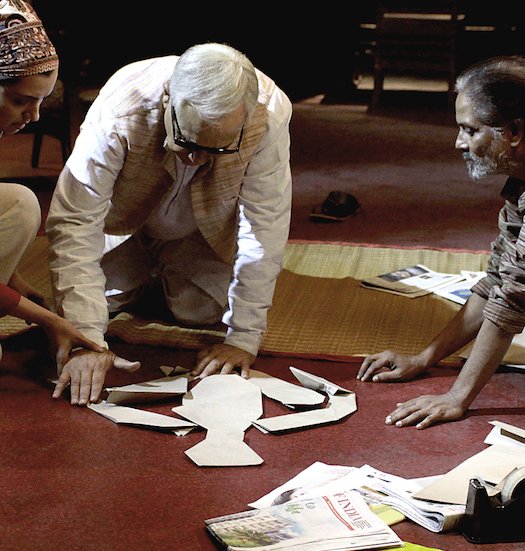Filmmakers Boot Camp at MAMI
Filmmaking is like war. Masters of cinema have termed it as a military art. Does it need as much preparation? The answer is yes. So, how does a filmmaker strategize for this warfare? Some join film schools and some polish their tools over the Internet. But what happens to be one of the best methods is to get first-hand accounts from people who are actively at it, the working directors, producers and curators. Precisely for the aforementioned reasons, the Jio MAMI 18th Mumbai Film Festival with Star organized a Filmmakers Boot Camp. It constituted of various panels wherein young filmmakers had an opportunity to share and learn various aspects of filmmaking.

Members of the Panel
These learnings were as diverse and unique as the filmmakers are. When we asked how the boot camp will help new filmmakers, producer Siddharth Roy Kapoor said, “It’s always good for first time filmmakers to get a perspective from the makers and producers who have made few movies, understand the process, get the whole feel about it. “They get a bird’s eye view of the whole process”, he stated. Kapoor also shared that as a producer he picks up films that appeal to him instinctively and to which he reacts emotionally.
Konkana Sen Sharma spoke about her directorial debut “Death In the Gunj” which will be the opening film at MAMI. She was quite excited about it and said direction wasn’t a planned step but it naturally came to her and she grasped it.
After her first draft, Konkana sent the script to the Screenwriters Lab. “The lab really helped me in polishing and making the draft crispier. Essentially it’s the same film, same main characters but at the same time I had sub-plots which were made tighter. And I only started writing the script when I had the entire story in my mind so there wasn’t any writer’s block that I faced. I even described visuals and shots that I specifically wanted in the screenplay.”
How much does she think that a boot camp like this helps the filmmakers? “It helps people in different ways. It’s mainly about what you take from the boot camp.”
One of the participants at the boot camp was Amit Kumar (Director, Monsoon Shootout) who spoke about the challenges that he faces while writing a script. “While writing, I sometimes go off on a tangent, spending ten pages on something which can be explained in two. That’s the toughest for me personally. But technically, it’s good to vomit it out and then mercilessly edit all that is not needed.”

During a Panel Discussion
Moving from the aspect of writing to production, Ajit Thakur, CEO, Trinity Pictures spoke about the advantage of co-production. “For specific types of films, co-production helps you reach new markets and further what we can do for our filmmakers and our content.”
He narrated his own experience of co-producing films with China, “We have been working with China on two films and it has been a fascinating experience. We were told that it will be extremely difficult but they have been very transparent and helpful. Similarly, we are now working with Russia and I think it depends a lot on how you engage them. We have the creative talent, the ideas and stories and now we need partners to help the Indian film industry grow.”
Neeraj Ghaywan, whose debut film Masaan was an Indo-French co-production, also shared his personal learnings. “It is intimidating because you are unsure of the outcome and there is a long waiting period, but I would suggest young filmmakers to go for a co-production because the benefits are immense. A movie like Masaan would not have been possible without the help of a co-producer. It became big through this as the movie travelled around Europe and many other countries.”
All in all, it was a day well spent with thought-provoking learnings!
By Manoj Sharma & Aarti Sukhija



